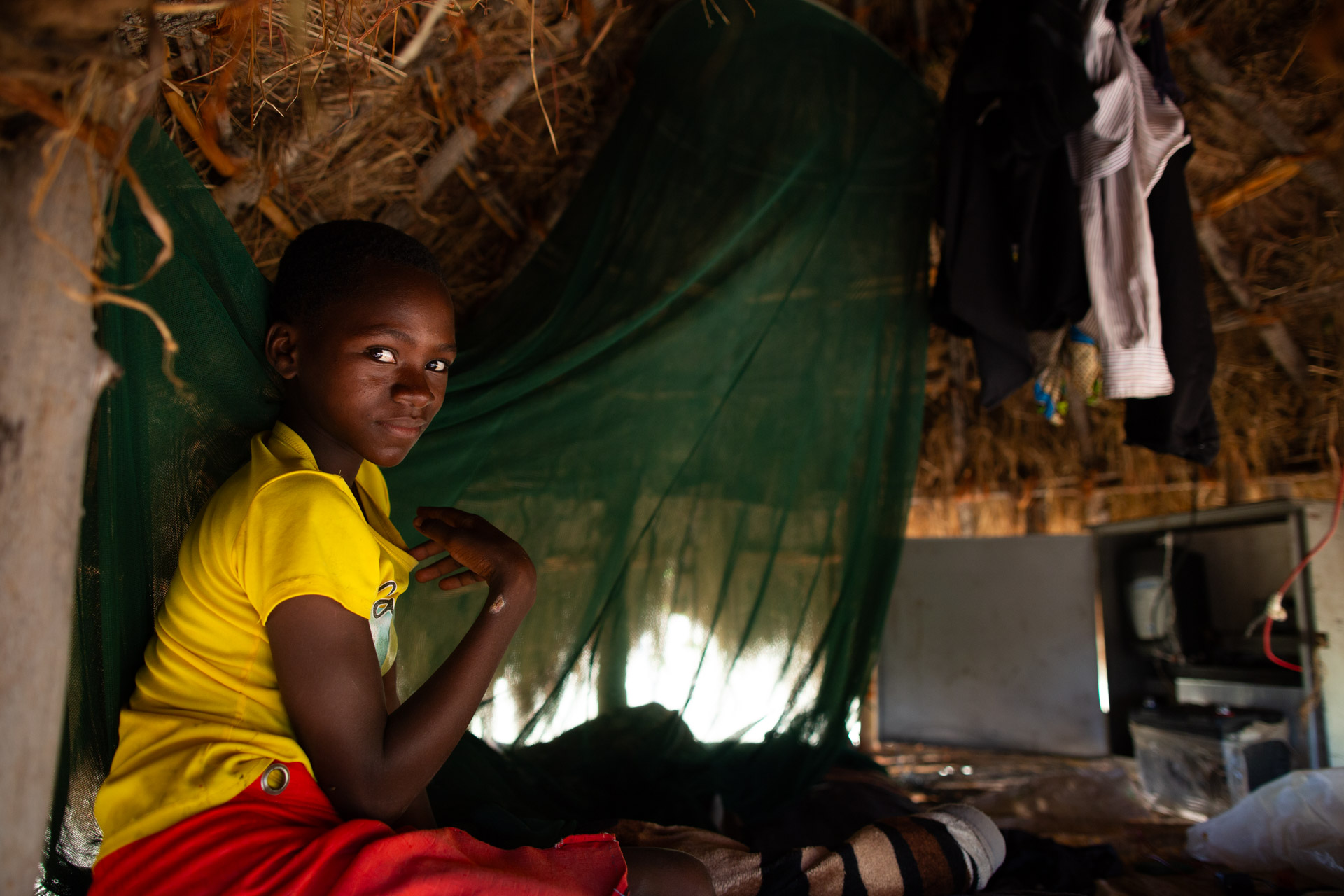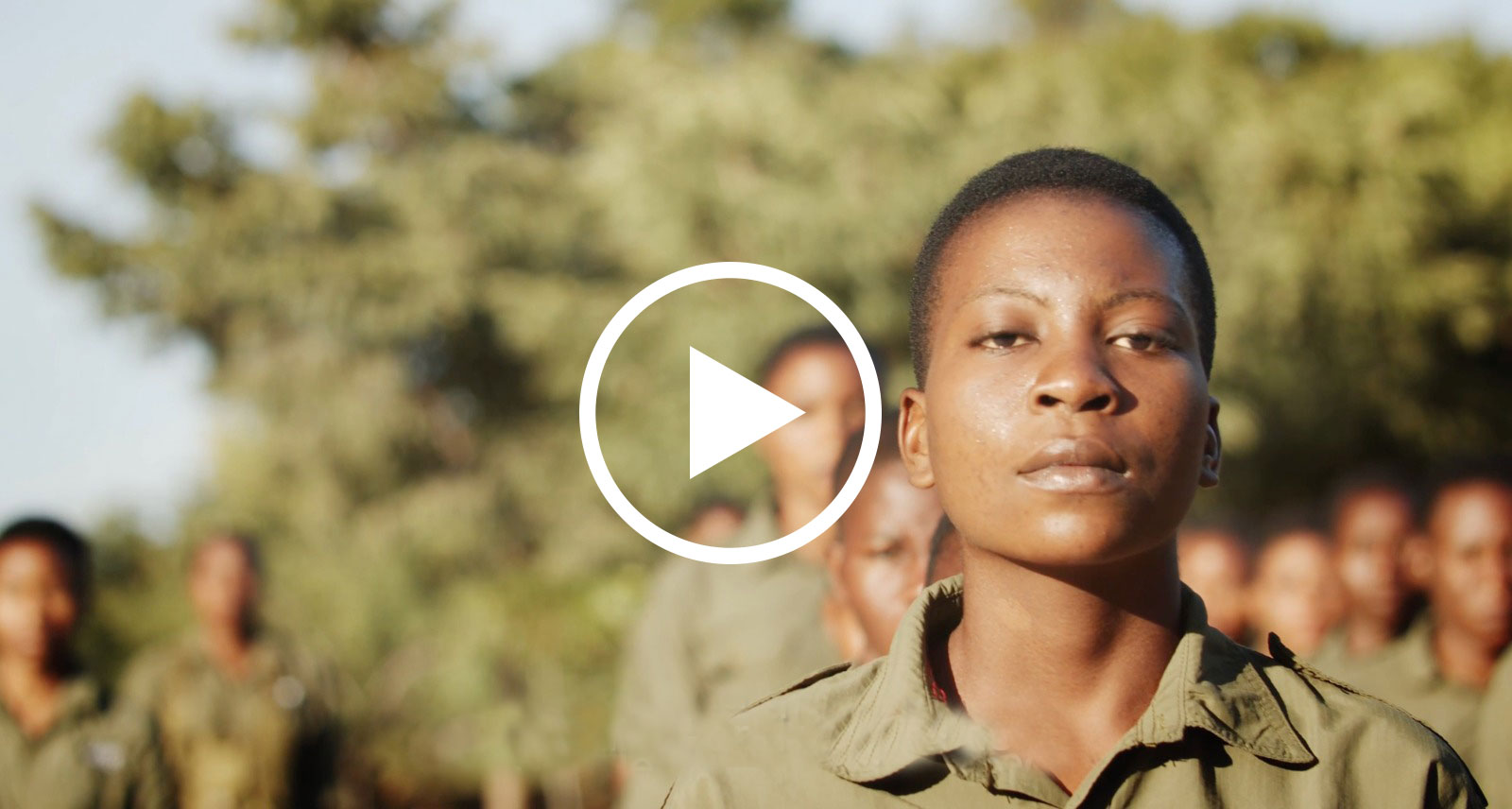“If God wills and gives me more years, I want to teach my children up to the highest level, so that tomorrow they will never be lost,” says Rebecca Dube. Like many of her colleagues, she grew up in poverty with limited opportunities and married at a young age. Having only a basic high school education did not open any doors for employment, so when Rebecca’s husband left her, she found herself back at her family home, struggling to support her two children alone.
Today, Rebecca is an Akashinga Ranger at Songo Camp in Binga District. Not only does she fully support her children, she makes their education a priority, all while also supporting other family members. The success she has achieved as a single woman is recognized in her community. “When I show people at home what I am doing, they clap hands for me,” she says.
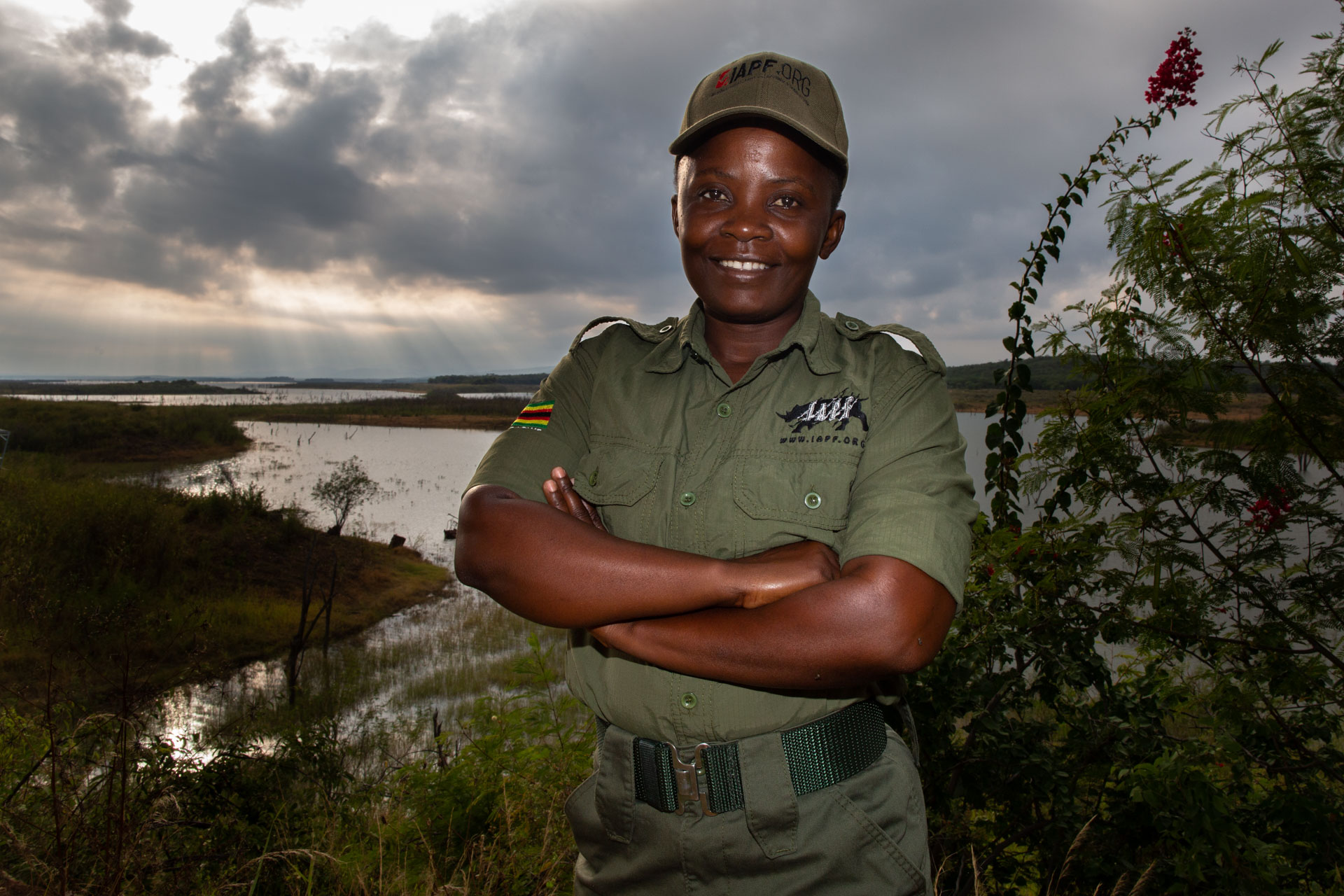
Rebecca’s hopes for her children, Benedict and Cutemore, permeate throughout Akashinga. Every ranger delights in being able to afford school fees and uniforms, and in giving their children the opportunities they didn’t have. Leon Varley, Head of Operations at Songo Camp, attributes the uncompromising ethics of the all-female anti-poaching unit to this progressive mindset: “They think ahead a lot because they're not just thinking about themselves all the time. They're thinking about their kids.”
Leon, a professional guide who has been building camps for IAPF since 2009, is highly attuned in how Akashinga is constructing futures. “Your habitat, your animals, your trees, everything. Your lives, your education, your infrastructure, your social well-being. You leave it better for your children than what you inherited from your parents,” says Leon. “That’s what conservation means.”
By this definition, conservation is at the heart of IAPF’s work in Songo, and the community is beginning to notice.
In March this year, Enock Mukarati, the Deputy Head of Sizemba Highschool, described the pride the school felt at receiving two new school blocks with support from IAPF. “The community around were surprised and also motivated,” he said. He expressed a hope that the new buildings would have a positive impact on the pass rate, as students and teachers alike would thrive in the purpose-made learning space.
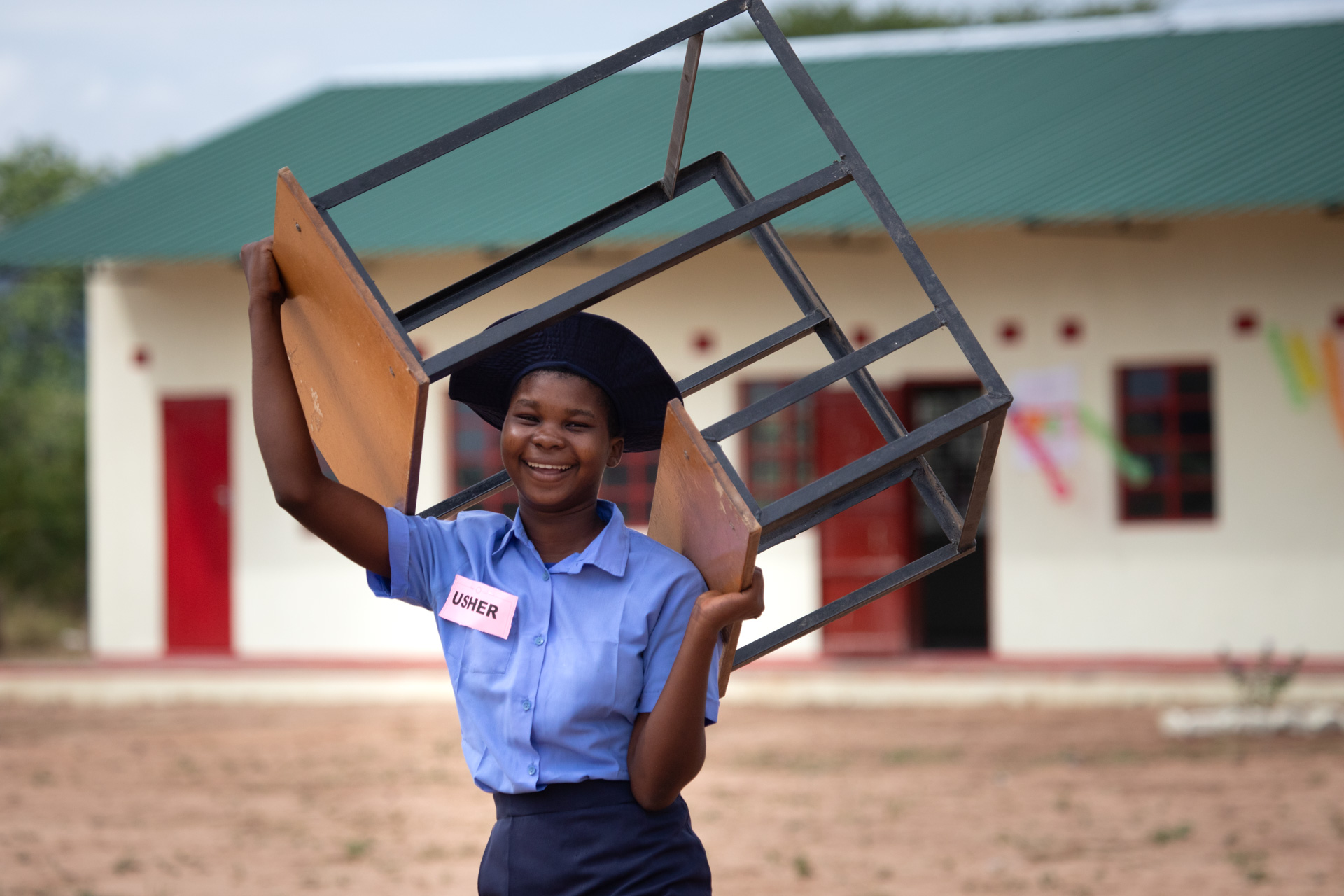
Meanwhile, at Sinamusanga Primary School, the Deputy Head Gilbert Mumpande laments that despite having 500 students, the only regular fees the school receives come from the 19 IAPF Scholarship students. The fees and investment from IAPF have a knock-on effect in developing the school and are also reflected in the attitude of the children. “We have noticed that most of our students are now aspiring to become rangers,” he says, laughing wryly at a correlating decline in the number of students keen to graduate as teachers.
With a long-standing passion for community work, Mags Varley, the IAPF Area Manager at Songo, is especially proud of the IAPF Scholarship Programme. The scholarships are both merit and need-based and currently support 204 students and 25 subsidiary teachers to supplement those provided by the Ministry of Education. Aside from providing the finances that allow children an academic education, IAPF distributes conservation education materials for teachers while running corresponding workshops and ‘Look and Learn’ camps that enable kids to experience wildlife firsthand and develop a love and appreciation of their environment.
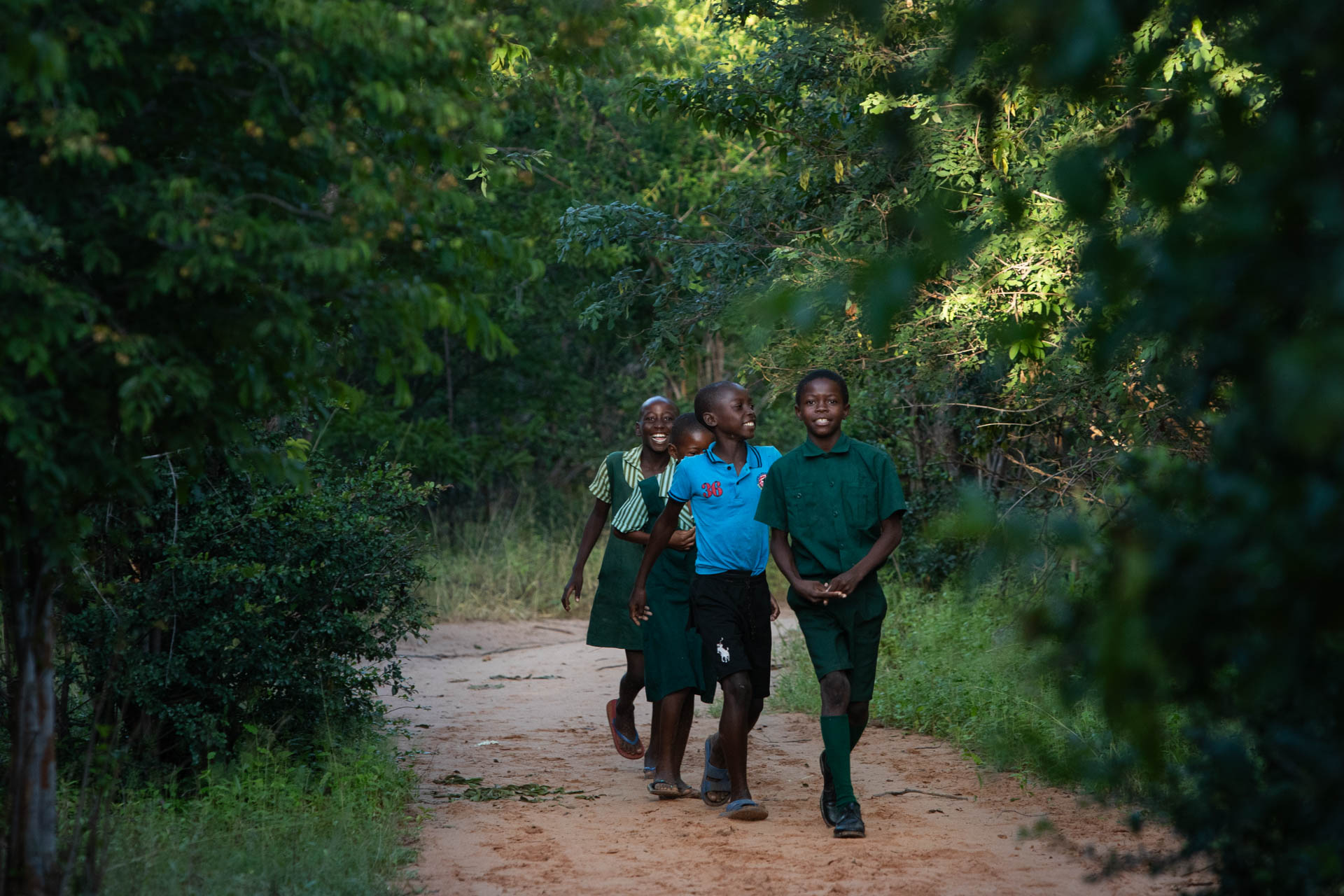
The theory that people who reside in a rural area are naturally attuned to and understand the wildlife is misguided. Ranger Rebecca Dube confirms that although she “started with fear,” our Akashinga Programme provided her with the knowledge and skills to operate in the bush. When she meets elephant or buffalo on her patrols, she now knows what to do. Similarly, many children in the extended Songo community have never seen big game, but the ‘Look and Learn’ camps give them an opportunity for close-up encounters during game drives or boat rides.
In a remote region of Binga District, with little access to formal education or economies, investing in either could change the narrative for the communities around Songo. IAPF supports and is invested in both.
Songo is perched on the edge of Lake Kariba, 150 km to the nearest township and at least a 10-hour drive to the closest major town. It’s a cash-only economy. Local people survive on fishing and subsistence farming. The business, structural, and educational neglect of the past few decades brought illegal fishing to the region, decreasing yet another resource from locals. Illegal fishing is becoming less relevant as IAPF moves poachers to legally controlled areas and provides outreach to fishing camps from the clinic operating at Songo.
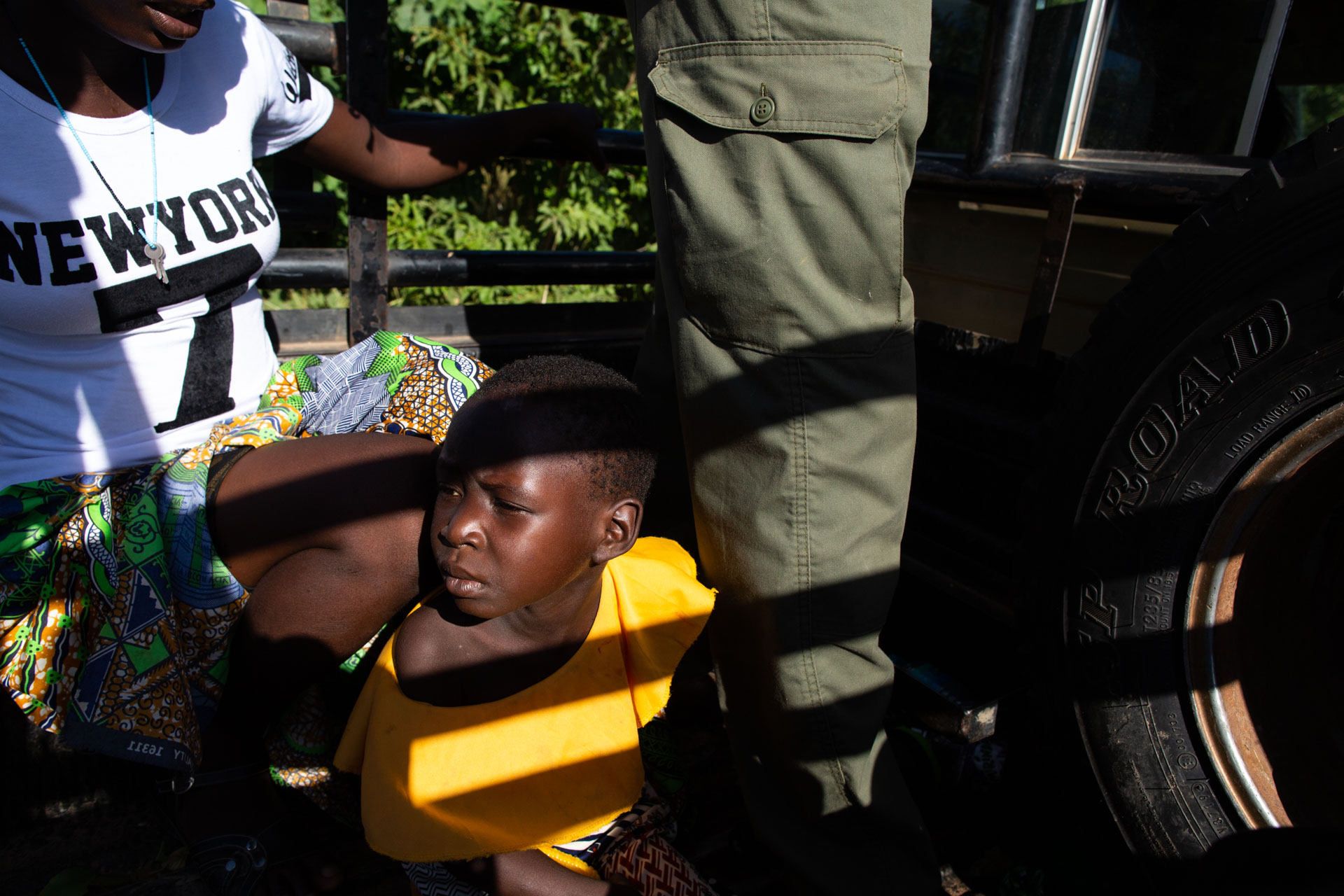
The IAPF camp at Songo provides an alternate economy by providing jobs where there were none before. While local women are employed as Akashinga Rangers, their husbands, uncles, brothers, and others are employed to do building, transport, maintenance work, and road construction, injecting much-needed cash into the community. IAPF also supports multiple locally owned businesses and projects started by entrepreneurial community members. The intention of projects like the bread-making and peanut butter cooperatives is to create sustainable employment supported by Songo’s captive market. It’s a win-win situation for a camp that must wait a minimum of four days for supplies to travel by road from the capital Harare or cross Lake Kariba on a barge.
Other community solutions include the 72km of single-strand electric fencing used to protect fields and granaries from elephants. While IAPF provided the fencing, it’s been powerful to witness the ways in which the community has taken ownership of the materials, maintaining, deconstructing, moving, and rebuilding according to their own needs. The health clinic at Songo is now equipped with medical supplies and a registered nurse, and serves thousands of community members. And Songo provides a willing market with plenty of encouragement and support for anyone entrepreneurial.
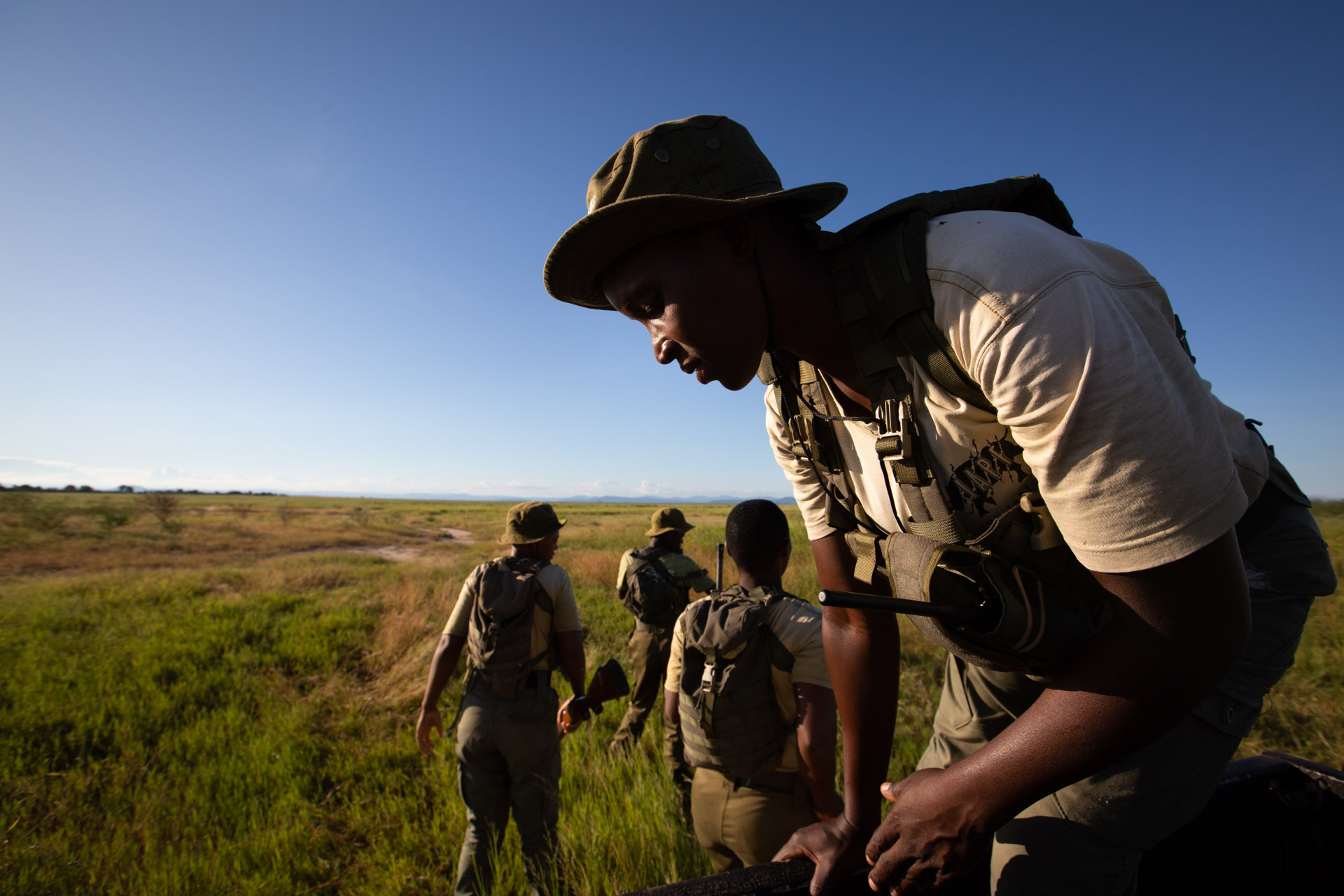
There’s a future-forward mentality growing in Songo as the community works towards a new legacy. People feel proud of their successes. They enjoy seeing and learning about wildlife and bearing witness to all the ways conservation is changing their world. They are starting to trust that their children’s futures look much different than their own pasts.
